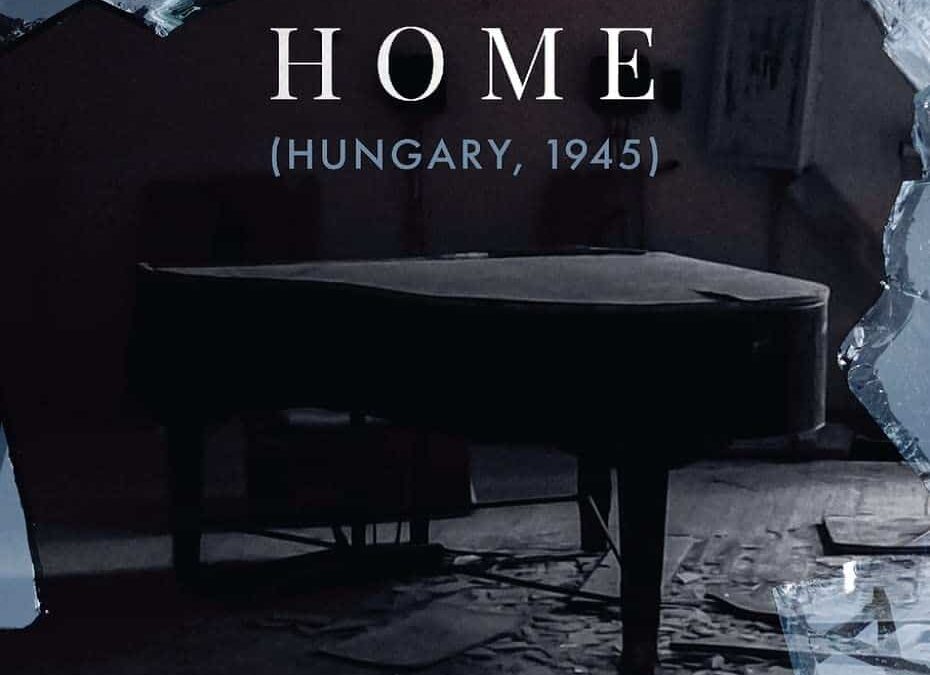Dean Cycon is an author, lawyer, human rights advocate, and social entrepreneur who has lived and worked in over sixty countries. A passionate explorer of culture and history, Dean seeks out unexamined corners that illuminate the human condition. He has previously published Javatrekker: Dispatches from the World of Fair Trade Coffee, which was awarded the Gold Medal for Best Travel Essay by the Independent Publishers Association and has been translated into Chinese, Korean, and Spanish. Finding Home (Hungary, 1945) is his first novel. Dean lives in Western Massachusetts, USA.

For nine months in Auschwitz, eighteen-year-old Eva Fleiss clung to sanity by playing piano on imaginary keyboards. After liberation, Eva and the five remaining Jews of Laszlo, Hungary, journey home, seeking to restart their lives. Yet the town that deported them is not ready to embrace their return. Their former neighbors and friends resist relinquishing their newfound status and property, and they struggle with their roles as perpetrators, enablers, and bystanders during the Holocaust.
Longing for connection to her old life, Eva agrees to clean her former home, now the mayor’s home, in return for practice time on her piano. As her profound experiences allow her to access music at a depth she didn’t know existed, Eva’s performances begin to affect those around her-with unexpected consequences.
Q. What inspired you to write Finding Home (Hungary 1945)?
While researching WWII for another article, I came across references to an incident in Poland where villagers attacked Jewish concentration camp survivors who were trying to return to their homes. Several returnees were murdered. I was so shocked by the fate of the Jewish returnees that I needed to know more. As I dug deeper into the academic literature, trial transcripts, and news reports, I found many similar incidents around Eastern Europe after the war had ended. How could I be as worldly and educated as I am and not have known about this? I decided to stop the other novels I was working on and create a fictional quilt that brought all of these stories to life.
Q. What do you hope readers take away from this book?
First, the raw inhumanity that the survivors faced, the nightmare that continued beyond the gates of the camps. Second, how thin the veneer of civilization can be, especially when government officials implicitly or explicitly stoke resentment that then leads to communal violence. But I also want people to understand resilience. After all that they suffered and then continued to suffer, so many survivors went on to have families and lead purposeful lives.
Q. What were the challenges you faced writing this book?
I wanted to understand why the townspeople acted the way they did. It is too easy to see them as cartoon characters and villains. I wanted to present them as people with their own concerns and fears, but at the same time, not excuse anything that happened. I believe that if we can understand people’s motives, we have a better chance of preventing their rage or frustration, and fear from tuning into violence—a needed skill in the current climate as well as after the war.
Q. What was the highlight of writing this book?
The research, always the research. I greatly enjoy exploring little-known areas of history. Also, I had the opportunity to learn so much about music and how a musician thinks. Fortunately, I had my daughter, Aliya, who is a professional musician, to mentor me.
Q. Describe your writing space.
I write in a 9 x 12 room, a monk’s cave, actually, lined with books, ancient manuscripts, and maps. This atmosphere allows me to disappear from the mundane world for the several hours that I can each day until brought back to earth by the need to feed and walk the puppies.
Q. What is your favorite and least favorite part of the publishing journey?
My favorite part is the plot and character creation. I usually do that through research. For example, if I am researching thirteenth-century trade routes and coins used, I start to imagine the characters who would do the transactions. Then when I discover how coins were debased by melting them down and adding tin, for example, we have the plot of a young merchant cheated in a foreign land. Now he has to get out of that and also discover who cheated him. Fun! My least favorite part is marketing. With a million new books a year out there, it is difficult to be seen. Thank goodness my motivation is the pleasure of the work itself, not the number of books I sell.
Q. What was your favorite book as a kid?
Strangely enough, it was The Odyssey by Homer. I took it out of the library in the fifth grade (had to get my parents’ permission to read an adult book!) and became immersed in the hero’s journey to return home after many trials. It sort of became a major theme in my writing and my life.

